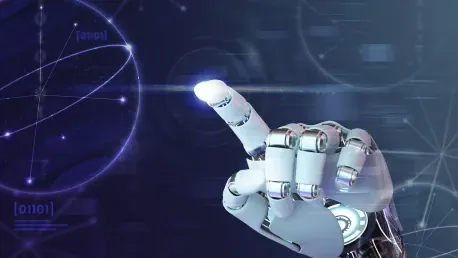Leap Automation Ltd., an emerging leader in affordable industrial AI robotics based in Aberdeen, has secured a significant £7.9 million investment to drive growth and scalability. This substantial financial boost, led by a £3.5 million contribution from the Scottish National Investment Bank and supplemented by investments from Mercia Ventures and WA Capital, reflects a growing consensus on the transformative potential of AI-powered robotic solutions. Leap Automation is particularly focused on addressing challenges faced by the food and drinks industry, a sector severely impacted by labor shortages. These shortages cost the UK food sector £1.4 billion last year, underscoring the urgent need for effective automation solutions. Leap’s innovative technology promises to revolutionize the field by offering simple, flexible, and cost-effective robotic systems designed to enhance productivity and operational efficiency.
The Impact of Labor Shortages on the Food Industry
Labor shortages in the food and drinks industry have become a critical issue, escalating costs and disrupting supply chains. In the past year alone, the UK food sector reported a staggering £1.4 billion loss due to these shortages. Numerous factors contribute to this labor crisis, including aging populations, restrictive immigration policies, and the pandemic’s lingering effects on the workforce. These challenges have compelled businesses to seek innovative solutions to maintain productivity and meet consumer demands. The labor shortfall has also had a cascading impact on the industry’s ability to innovate and grow. Companies must allocate more resources to recruitment and training, diverting funds from research and development. This resource strain stifles potential advancements and makes it difficult to stay competitive in an increasingly globalized market. Traditional methods of addressing labor shortages, such as offering higher wages or hiring temporary workers, have proven insufficient and unsustainable. In this context, AI-powered robotics emerge as a promising solution to address these multifaceted challenges, offering a way to maintain and even enhance productivity without relying on an increasingly scarce labor force.
Innovative Robotic Solutions for Future Sustainability
Leap Automation’s AI-driven robotic solutions are designed to tackle the food industry’s labor shortages head-on. By employing advanced algorithms and machine learning, these robots can perform various tasks with high efficiency and accuracy, from packaging to quality control. These systems are not only cost-effective but also highly adaptable, allowing them to integrate seamlessly into existing manufacturing processes. This adaptability is crucial for businesses looking to modernize without undertaking a complete overhaul of their operations. The robotics developed by Leap Automation also offer the benefit of scalability. As a company grows or experiences fluctuations in demand, these AI systems can be easily adjusted to accommodate changes in production volume. This flexibility provides a significant advantage over traditional labor, which requires time, resources, and training to scale up or down. By automating repetitive and labor-intensive tasks, companies can reallocate human resources to more strategic roles that require creativity and critical thinking, thereby fostering innovation and long-term growth.
Economic Benefits of AI-Powered Robotics
The economic benefits of implementing AI-powered robotics in the food industry extend beyond immediate cost savings. By increasing operational efficiency and reducing dependency on human labor, companies can achieve higher production rates and better-quality products. These improvements can lead to increased revenue and profitability, which in turn can be reinvested into further innovation and development. Moreover, the adoption of such technologies can position companies as industry leaders, attracting additional investments and partnerships. The positive impact of Leap Automation’s technology on the economy is not confined to individual businesses. On a broader scale, this shift towards automation can contribute to economic diversification and job creation in new technology sectors. For instance, the development, maintenance, and upgrading of these robotic systems require skilled labor, generating high-tech job opportunities and promoting a more diversified economy. Support from public entities like Scottish Enterprise highlights the technology’s potential to transform Scotland’s economic landscape. High-growth companies like Leap Automation are pivotal in creating groundbreaking products, expanding market presence, and developing highly skilled jobs.
Support and Future Prospects
Leap Automation’s AI-powered robotic solutions address the food industry’s labor shortages with precision and efficiency. Using advanced algorithms and machine learning, these robots can handle a wide range of tasks—such as packaging and quality control—with high accuracy. They’re not just cost-effective but also highly adaptable, fitting seamlessly into existing manufacturing setups. This adaptability is essential for businesses aiming to modernize without overhauling their entire operations. Moreover, Leap Automation’s robots offer exceptional scalability. As companies grow or face fluctuating demand, these AI systems can easily adjust to meet changes in production volumes. This flexibility is a major advantage over traditional labor, which demands significant time, resources, and training to scale up or down. By automating repetitive and labor-intensive tasks, businesses can free up human resources for roles that require creativity and critical thinking—promoting innovation and long-term growth. The integration of Leap Automation’s technology thus enables companies to maintain productivity and adapt to future challenges.









